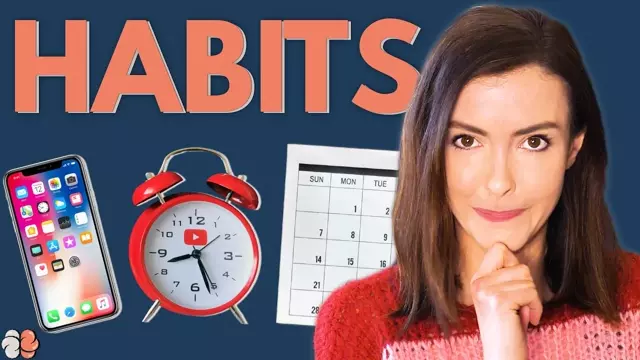2019-12-28
[public] 69.3K views, 4.27K likes, 42.0 dislikes audio only
Please consider SUBSCRIBING to BrainCraft http://ow.ly/rt5IE (and ring that bell 🧠)
🤔How to actually form habits that stick? 👇
1. Make things as easy as possible for yourself. So make sure your actions can be easily repeated.
2. Find a way to repeat your behaviours regularly for *at least* 2-3 months. Sometimes it takes more than a year to successfully form a habit.
3. Remember habits don’t necessarily form because of willpower
4. Look to how you can tweak your context to help you repeat the behaviour
** Visit http://www.brilliant.org/braincraft to keep learning. The first 200 people will also get 20% off a premium membership! **
Wendy Wood's book: Good habits, Bad habits https://amzn.to/2tLteeE
MY PATREON: https://www.patreon.com/BrainCraft
My Instagram https://instagram.com/nessyhill | Twitter https://twitter.com/nessyhill
Music by Epidemic Sound: http://epidemicsound.com/creator
REFERENCES 📚
Wood, W., Quinn, J. M., & Kashy, D. A. (2002). Habits in everyday life: Thought, emotion, and action. Journal of Personality and Social Psychology, 83(6), 1281–1297. https://doi.org/10.1037/0022-3514.83.6.1281
Bouton, M. E. (2014). Why behavior change is difficult to sustain. Preventive medicine, 68, 29-36. https://www.ncbi.nlm.nih.gov/pmc/articles/PMC4287360/
Dickinson A. and Weiskrantz Lawrence. (1985) Actions and habits: the development of behavioural autonomy. 308. Phil. Trans. R. Soc. Lond. B. http://doi.org/10.1098/rstb.1985.0010
Neal DT, Wood W, Wu M, Kurlander D. (2011) The pull of the past: When do habits persist despite conflict with motives? Pers Soc Psychol Bull. 37:1428–1437. 10.1177/0146167211419863
Privitera GJ, Zuraikat FM. (2014) Proximity of foods in a competitive food environment influences consumption of a low calorie and a high calorie food. Appetite. May;76:175–9. doi: 10.1016/j.appet.2014.02.004
Judah, Gaby & Gardner, Benjamin & Aunger, Robert. (2012). Forming a flossing habit: An exploratory study of the psychological determinants of habit formation. British journal of health psychology. 18. 10.1111/j.2044-8287.2012.02086.x.
#newyearsresolutions #habits #badhabits #psychology #resolutions #neuroscience #braincraft #behavioralscience
/youtube/video/wDTaeOTM6KM
/youtube/video/ZlGZZAsflwc
/youtube/video/-XeS1f9Otac?t=29
/youtube/video/-XeS1f9Otac?t=87
/youtube/video/-XeS1f9Otac?t=150
/youtube/video/-XeS1f9Otac?t=181
/youtube/video/-XeS1f9Otac?t=222
/youtube/video/-XeS1f9Otac?t=250
/youtube/video/-XeS1f9Otac?t=294
/youtube/video/-XeS1f9Otac?t=386
/youtube/channel/UCt_t6FwNsqr3WWoL6dFqG9w
https://www.patreon.com/BrainCraft
/youtube/video/NkUy2yzaCmQ

